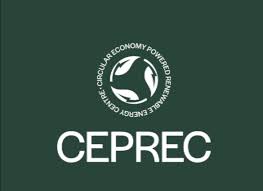The Circular Economy Powered Renewable Energy Centre (CEPREC) emerges as a beacon of hope amidst Africa’s pressing energy and e-waste predicaments. This pan-African research hub, launched through a virtual press briefing, champions sustainable energy solutions by embracing circular economy principles. This innovative approach aims to transform waste, often perceived as a burden, into valuable resources, thereby fostering economic opportunities and empowering communities across the continent. CEPREC’s vision transcends mere technological advancements; it prioritizes equitable research partnerships, capacity building, and policy influence to ensure long-term, sustainable impact. The centre’s initial footprint spans six African nations – Nigeria, South Africa, Kenya, Sierra Leone, Namibia, and Rwanda – with plans for broader continental expansion.
CEPREC’s establishment is a testament to the power of collaborative innovation. Funded by the UK Government’s Ayrton Fund, a £1 billion commitment dedicated to clean energy research and development, the centre unites over 30 stakeholders from the UK and sub-Saharan Africa. This transcontinental alliance comprises academic institutions, governmental bodies, and industry players, forming a multidisciplinary consortium focused on advancing renewable energy solutions. This collaborative framework underscores the understanding that tackling global challenges, such as energy access and waste management, requires shared knowledge, resources, and expertise. The partnership between UK and African institutions fosters a mutually beneficial exchange of ideas, best practices, and technological advancements, accelerating the path towards sustainable energy transitions.
The centre’s operational strategy revolves around three core pillars: research, innovation, and capacity building. CEPREC’s research agenda will delve into innovative ways to utilize waste materials as resources for renewable energy generation. This includes exploring technologies to repurpose e-waste, agricultural residues, and other organic waste streams to create biofuels, generate electricity, and produce valuable by-products. The centre will also foster innovation by supporting the development and deployment of cutting-edge renewable energy technologies specifically tailored to the African context. Critically, CEPREC recognizes that technological advancements alone are insufficient for lasting impact. Thus, capacity building forms an integral part of the centre’s mission, focusing on training local engineers, technicians, and entrepreneurs in the installation, maintenance, and operation of renewable energy systems. This empowers communities to become self-sufficient in managing their energy needs and ensures the long-term sustainability of implemented solutions.
CEPREC’s leadership emphasizes the transformative potential of the circular economy in revolutionizing Africa’s energy landscape. Professor Muyiwa Oyinlola, Director of CEPREC and Professor of Innovation for Sustainable Development at De Montfort University, envisions the initiative as a catalyst for economic transformation, turning waste into opportunity and empowering communities. Professor Layi Alatise, Deputy Director (Engineering) of CEPREC and Professor in Power Electronics at the University of Warwick, stresses the crucial role of local capacity building in ensuring the long-term success of implemented technologies. The emphasis on skills development and knowledge transfer ensures that African communities not only benefit from these innovations but also become active participants in designing, implementing, and maintaining their own sustainable energy solutions. This approach ensures that the benefits of the circular economy are deeply rooted within local communities, fostering ownership and driving long-term prosperity.
The strategic partnerships forged by CEPREC are instrumental in translating research findings into actionable policies. Chatham House, a renowned international affairs think tank, collaborates with CEPREC to bridge the gap between research and policy, ensuring that the centre’s findings inform national, regional, and international energy strategies. This collaboration highlights the importance of evidence-based policymaking in driving effective and sustainable energy transitions. By working closely with policymakers, CEPREC can influence the development of regulations and incentives that promote the adoption of circular economy principles within the energy sector. This strategic alliance maximizes the impact of CEPREC’s research, ensuring that its findings translate into tangible policy changes that contribute to a more sustainable energy future for Africa.
The consortium of institutions partnering with CEPREC represents a diverse range of expertise and geographical representation, strengthening the centre’s capacity to address the complex challenges of Africa’s energy sector. UK institutions, including De Montfort University, the University of Warwick, and Chatham House, bring their expertise in research, innovation, and policy analysis. African partners, such as Strathmore University (Kenya), the University of Lagos (Nigeria), the University of Namibia (Namibia), the University of Sierra Leone (Sierra Leone), Kigali Collaborative Research Centre (Rwanda), Tshwane University of Technology (South Africa), the University of Nairobi (Kenya), and the University of Nigeria (Nigeria), provide crucial local knowledge, context, and networks, ensuring the relevance and effectiveness of CEPREC’s initiatives within specific national contexts. This transcontinental partnership fosters a dynamic exchange of knowledge and resources, strengthening the capacity of both UK and African institutions to contribute to a sustainable energy future.














